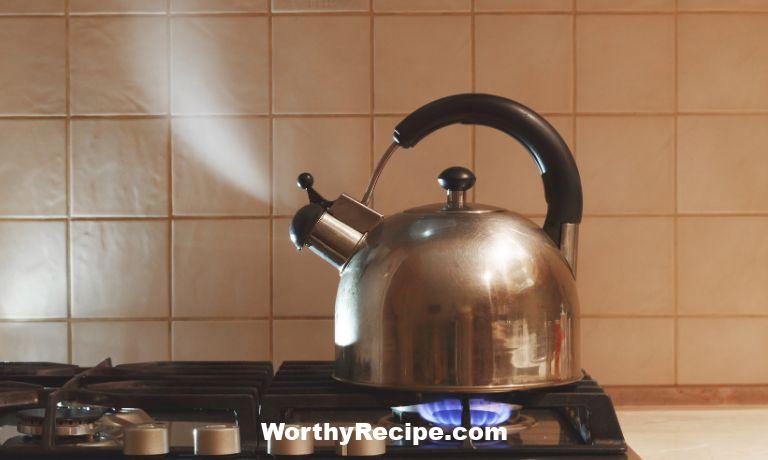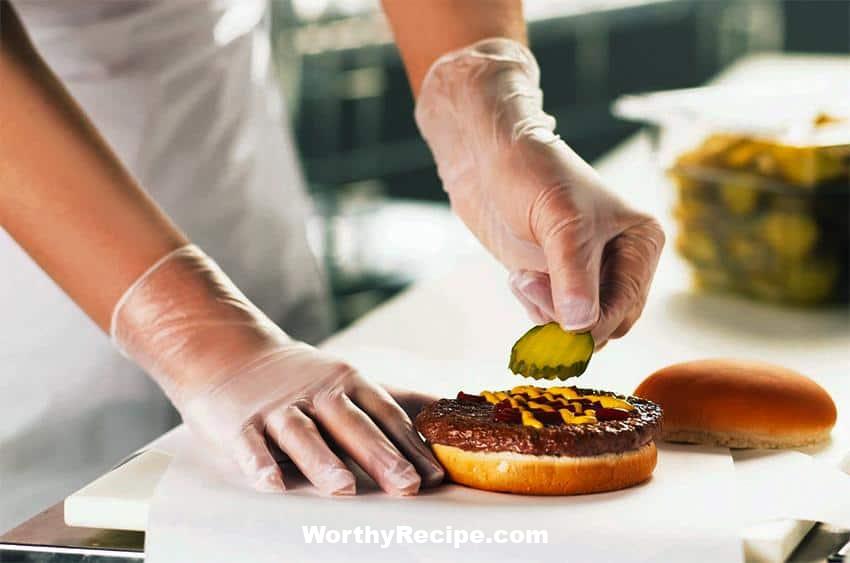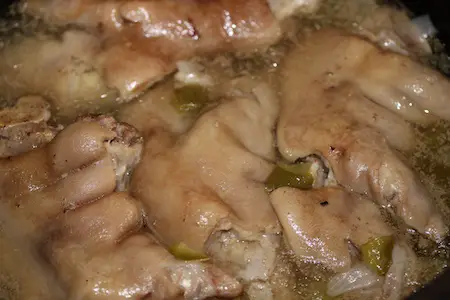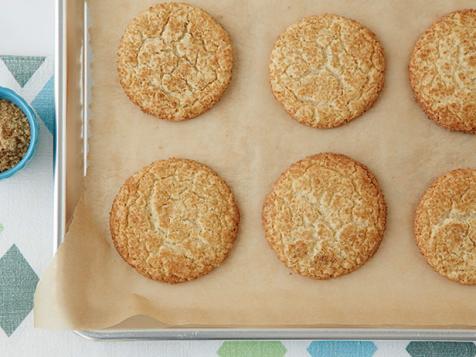Quick Answer: How Long Does a Stovetop Kettle Take to Boil?
Boiling water is a necessary and essential task in just about any kitchen. Whether you’re making tea, cooking pasta, or sterilizing jars for canning, you’ll need boiling water. One of the most common ways to boil water on a stovetop is using a kettle. But how long does it take for the water to come to a boil? The answer depends on several factors, including the size and material of the kettle, the amount of water being boiled, and the type of stovetop used.
Factors that Affect Boiling Time
The time it takes for a stovetop kettle to boil can vary depending on several factors that affect its performance. These include:
Size and Shape of the Kettle
The larger the kettle, the longer it takes to bring the water to a boil. This is because there’s more cold water in the kettle that needs to be heated up. Likewise, the shape of the kettle can also affect boil time. A wide-based kettle with a large surface area will heat up faster than one with a smaller base.
Material of the Kettle
The material of your kettle can play an important role in boiling time. Different materials conduct heat differently and can affect how quickly your water boils:
- Stainless Steel: Stainless steel kettles are popular because they are durable and easy to maintain. They’re also great at conducting heat, which means they boil water quickly.
- Glass: Glass kettles are popular because they allow you to see the water as it boils. However, they’re not as good at conducting heat as stainless steel, which means they can take longer to come to a boil.
- Copper: Copper kettles are known for their excellent heat conductivity. This means they can bring water to a boil relatively quickly. However, copper is a reactive metal, which means it can react with certain foods and beverages.
- Aluminum: Aluminum kettles are lightweight, which makes them easy to handle. However, they’re not as durable as stainless steel or copper, and they don’t conduct heat as well.
Amount of Water in the Kettle
The more water you’re boiling in your kettle, the longer it will take to come to a boil. This is because there’s more cold water that needs to be heated up.
Type of Stovetop Used
The type of stovetop you’re using can also affect how long it takes for your kettle to boil. Gas burners tend to heat up faster than electric burners, so if you’re looking for a quick boil time, gas is the way to go.
Average Boiling Times for Different Kettle Materials
The following table shows the average boiling times for different materials of stovetop kettles. These times are based on boiling 1 liter (about 4 cups) of water:
| Kettle Material | Average Boil Time |
| Stainless Steel | Approximately 4-5 minutes |
| Glass | Approximately 6-7 minutes |
| Copper | Approximately 3-4 minutes |
| Aluminum | Approximately 5-6 minutes |
Tips to Make Your Kettle Boil Faster
If you’re in a hurry and need your water to boil as quickly as possible, there are several things you can do:
- Preheat the Stovetop: Before you place your kettle on the stovetop, turn on the burner to preheat it. This can help you get the water boiling faster.
- Use Hot Water: If you’re filling your kettle from the tap, try using hot water instead of cold water. This can shave off a few minutes from your boiling time.
- Place a Lid on the Kettle: Covering your kettle with a lid while it boils can trap heat inside and help the water come to a boil faster.
- Keep Your Kettle Free from Mineral Build-Up: Over time, mineral deposits can build up inside your kettle. This can hinder its performance and make it take longer to boil. Regularly cleaning your kettle with vinegar or lemon juice can help prevent these deposits.
Safety Precautions While Boiling Water
Boiling water may seem like a simple task, but it’s important to take certain precautions to avoid accidents or injuries.
Importance of Keeping a Close Eye on Boiling Water
When water comes to a boil, it can quickly overflow or splatter if you’re not paying attention. Always keep a close eye on your kettle while it’s boiling and turn off the heat as soon as the water reaches the desired temperature.
Dangerous Effects of Uncontrolled Boiling Water
Uncontrolled boiling water can cause serious injuries or damages. The steam released by boiling water can cause burns, while spilled boiling water can damage surfaces or ignite other objects.
Precautions to Prevent Burns Caused by Steam or Boiling Water
To prevent burns caused by steam or boiling water, take the following precautions:
- Use Oven Mitts: Always use oven mitts when handling your kettle, especially if it’s been on the heat for a while.
- Keep Your Face and Hands Away: When removing the lid from your kettle, stand back and tilt the lid away from you to avoid being burned by the steam.
- Pour Slowly: When pouring boiling water, do it slowly and carefully to avoid spills or splatters.
Conclusion
Knowing how long it takes for your stovetop kettle to boil can help you plan your time in the kitchen more efficiently. Remember that several factors can affect boiling time, including the size and material of your kettle, the amount of water being boiled, and the type of stovetop used. Some materials like copper are known for their excellent heat conductivity and faster boiling times. Also, taking safety precautions when handling boiling water is critical to avoiding accidents or injuries.
If you’re still having trouble getting your kettle to come to a boil quickly, try some of our tips and techniques. Whether you’re in a rush or just trying to save time, these hacks can help you get your water boiling faster.
What factors affect the time it takes for a stovetop kettle to boil?
There are several factors that can affect how long it takes for a stovetop kettle to boil. These include the size of the kettle, the material it is made from, the heat source used, and the amount of water being heated.
How long does it typically take for a stovetop kettle to boil?
The amount of time it takes for a stovetop kettle to boil depends on several factors mentioned above. Generally, it should take between 3 to 5 minutes for a full kettle to reach boiling point.
Are there any tips for speeding up the boiling process?
Yes, there are several tips you can follow to speed up the boiling process. One is to fill the kettle with just enough water that you need. Another is to use a smaller-sized kettle, which will heat up quicker than a larger one. Additionally, using a gas stove instead of an electric stove can also help speed up the boiling process.
Is there any danger in leaving a stovetop kettle unattended while it’s boiling?
It is not recommended to leave a stovetop kettle unattended while it’s boiling since there is a risk of the water evaporating and causing damage or starting a fire. Always keep an eye on your kettle and turn off the stove once the water has reached boiling point.







